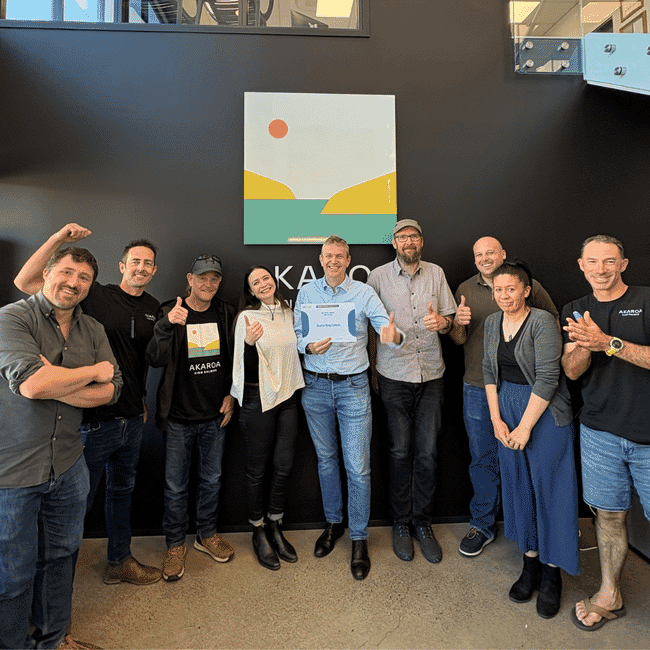
© FAO
The award was presented at FAO’s Global Technical Recognition Ceremony in Rome, part of the organisation’s 80th anniversary and World Food Day events under the theme Hand in Hand for Better Foods and a Better Future. The celebration drew world leaders including Pope Leo XIV, Italian Prime Minister Giorgia Meloni, and many others.
The FAO initiative honours technical excellence, collaboration and best practice across transformational food production. To mark its 80th anniversary and the 30th anniversary of the Code of Conduct for Responsible Fisheries, FAO recognised 46 organisations worldwide for their role in advancing sustainable aquatic food systems. These collective efforts are driving FAO’s Blue Transformation – to accelerate the shift to more resilient, productive and sustainable fisheries and aquaculture.
Akaroa King Salmon was recognised for pioneering circular and regenerative feed strategies, proving that boutique-scale aquaculture can deliver innovation with global significance. FAO deputy director-general Beth Bechdol said during the ceremony: “We have seen how technical excellence paired with commitment can deliver real results. We have seen what is possible when people work together across disciplines and sectors.”
As the world’s smallest ocean salmon farm, Akaroa shows that size is no barrier to innovation or influence. Like the small-scale fisheries that provide around 40 percent of global seafood, Akaroa demonstrates that smaller operators can contribute solutions with global reach.
Working with feed innovator BioMar, Akaroa was the first King Salmon producer to adopt Blue Impact feed – replacing wild-caught fish oil with fermented algal oil and incorporating New Zealand hoki trimmings that would otherwise have gone to waste. This reduces reliance on wild harvests, lowers emissions and improves fish nutrition. A recent life cycle assessment by ThinkStep ANZ confirmed that New Zealand King Salmon has one of the lowest carbon footprints of any animal protein. This December will mark 40 years since Akaroa King Salmon first began its production as just a single pen.
“This FAO recognition shows that even the smallest farmers can have a global impact. We tuned in online at 4:30am NZ time to watch the ceremony and it was humbling to be recognised alongside much larger organisations like the Marine Stewardship Council. It proves innovation doesn’t only come from the biggest players – smaller producers like ourselves, working with partners such as BioMar, can set new benchmarks that move the whole industry forward,” said Nik Mavromatis, marketing manager at Akaroa King Salmon, in a press release.




